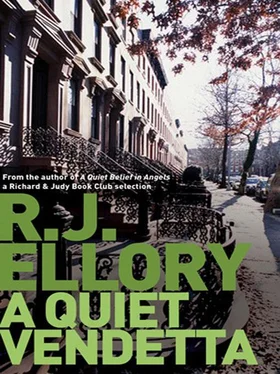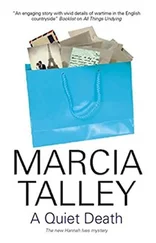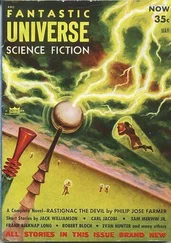Perez smiled. ‘On the contrary, Mr Hartmann, I am going to give you everything.’
‘About the girl though,’ Hartmann said. ‘You’re not going to give us anything about the girl.’
‘All in good time,’ Perez replied.
‘And you can assure us she is safe and well, and that no harm will come to her?’
Perez looked away towards the corner of the room. His face was implacable, and Hartmann believed a man such as this must have spent the greater part of his life withholding as much as he could from everyone around him. A man like this would stand on a subway platform, in a queue at a coffee shop, biding his time patiently as he waited in line at a supermarket checkout, and no-one would have had an inkling of who he was.
‘I can guarantee nothing, Mr Hartmann. Even as we speak Catherine Ducane might be choking to death on the ropes that have been used to tie her. She may have attempted to work herself free and be suffocating even as we speak. She does not have a lot of time, and thus any time you spend attempting to solicit information from me is indirectly contributing to her demise. It’s the rule of threes, Mr Hartmann-’
‘The what?’
‘The rule of threes. Three minutes without air, three days without water, three weeks without food. Catherine Ducane has already been in my possession since Wednesday the twentieth… that’s the better part of a week and a half already.’
In his possession , Hartmann thought. That’s the way he thinks of her, that she is in his possession . Hartmann closed his eyes for a moment. He tried not to think of her. He tried not to comprehend the combined frustration of every federal operative that was now directly, and indirectly, involved in this situation. He tried to focus his mind, tried so hard to focus, but no matter how hard he concentrated he could not pull away from the image of a starved and frightened young woman tied somewhere to a chair, all the while believing that this man would return only to kill her.
‘So we should waste no more time, Mr Hartmann,’ Perez said matter-of-factly. ‘We should talk, should we not?’
‘Yes,’ Hartmann said. ‘Yes, we should talk.’
He poured the coffee. He set the cups on the table along with an ashtray and, as Ernesto Cabrera Perez began to speak once more, Ray Hartmann leaned to his left and gently closed the office door.
¡Lo Cubana – está aquí! – The real Cuba – it’s here!
Havana.
Stalinism and palm trees.
The crumbling façade of Spanish colonialism.
Barrio di Colón, the tattered remnants of the red light district from Batista’s dictatorship.
San Isidro, once beautiful, stately, awe-inspiring, now ramshackle and desperate, hunkering around Havana’s railway district like a dirty and discarded coat.
Later, much later, there was a boy who would become as close to me as a brother, and we would remember this time.
‘You remember January of ’59?’ he would say. ‘When there was a strike of all the working people, and Havana came to a standstill. Batista was president then, and his secret police were fighting with the rebels in the streets. It was then that Castro’s guerrillas came from the mountains, and they ran through the streets and took this city. There was no-one left to fight them, no-one at all. You remember that time, Ernesto?’
The boy would smile, and in that smile was a memory of something that would forever remain a part of our lives.
‘When Castro made Manuel Urrutia the president after Batista fled, and he swore in the new government at Oriente University in Santiago de Cuba, yes? They made Castro Delegate of the President for the Armed Forces and Jose Rubido as Chief of the Army. And Castro? He drove like a conquering Caesar along the length of the island towards Havana! We celebrated everywhere he went, and that evening we heard that those who’d stood against Castro in Las Villas Province, Colonel Lumpay and Major Mirabel, had been executed.’
The boy had smiled again. ‘I saw them executed, Ernesto… I saw them plead for their lives, but Castro was like a king returned to his homeland and he allowed no mercy. He put Che Guevara in charge of Havana itself, and we went through the streets, thousands of us, and we burned flags and we set buildings on fire, and there were men drinking wine and singing and fucking women in the street. Down Calzada de Zapata we went, our voices raised, and out along Avenida Salvador Allende and through Coppelia Park to the Cristobal Colón Cemetery…’
I laughed with him. I remembered these things. I had been there too. Ernesto Cabrera Perez. We were amongst them, me and my ghost of a father, caught in the whirlwind of revolution and passion and gunfire.
My father was all of forty-six years old, but he carried himself as if he were sixty or seventy. The Havana Hurricane had come home, back to a place whose name he had used with self-aggrandized pride, but in the face of everything, the age and history and significance of this place, he was nothing more than what he truly was: a fighter, a whiskey-fueled brawler, a bare-knuckle madman possessing neither sufficient sense nor sanity to work a trade alongside his Friday night thunderings. And yet he was even less than that – weaker and more broken and less substantial than I had ever believed, and he carried inside of him a guilt so burdensome and weighty that the strength remaining in his bones and frame could not have borne it for long. He had killed his own wife. In a fit of insatiable sexual fury he had broken his own wife’s neck as he forced her against the wall. That was what he was, and that was all he was, and that was all he ever would be: a stupid old man, old before his time, who in some moment of drunken madness had killed the only person who’d ever really loved him. Loved him not for what he was, but loved him for what she believed he might become. In the end she was wrong, for he became nothing, and I walked with that nothing, the shell of a man that was my father, through the streets of Old Havana, down along Calle Obispo to the Plaza de Armas, and as he walked he whispered in his hoarse and fatigued voice, No es fácil… no es fácil … It’s not easy… it’s not easy.
‘I know, Father, I know,’ I would reply, and though my words bore the face of sympathetic understanding, they carried behind their backs the grim steel of vengeance.
The Sicilians – years, so many years later – would tell me of vengeance. ‘ Quando fai i piani per la vendetta, scava due tombe – una per la tua vittima e una per te stesso ,’ they would say. You head out for vengeance, you dig two graves… one for your victim and one for yourself. And then they would smile with their mouth but not with their eyes, and in that expression you could see a thousand years of understanding about the darker elements of man and the shadows that he carried.
But during those first few weeks, as we found our feet, as I discovered the land of my father, as Cuba gave birth to something inside of me that made me believe that wherever I might have been born, wherever I might have been raised, this place – this impassioned, heated, sweating, writhing confusion of humanity and inhumanity, sprawling out from west to east, a punctuation mark between the Atlantic and the Caribbean, the Gulf of Mexico, the Florida Straits, the Windward Passage – was so much more than I had ever believed or imagined.
Such romance, such fiction! Names such as Sancti Spiritus, Santiago de Cuba, a stone’s throw from Haiti and Jamaica, from Puerto Rico and the Bahamas; St James the Apostle Carnival, the African-Catholic faith of Santeria, and rumba and salsa and cha-cha-cha, and lazy island days out of Cayo Largo, and here is where Hemingway would live at Papa’s Place , Finca la Vigia, and after his death his family would give his home to the people of Cuba for carrying the dreams of their son for the better part of twenty years.
Читать дальше







![Quiet Billie - Don't mistake the enemy [СИ]](/books/421973/quiet-billie-don-t-mistake-the-enemy-si-thumb.webp)




